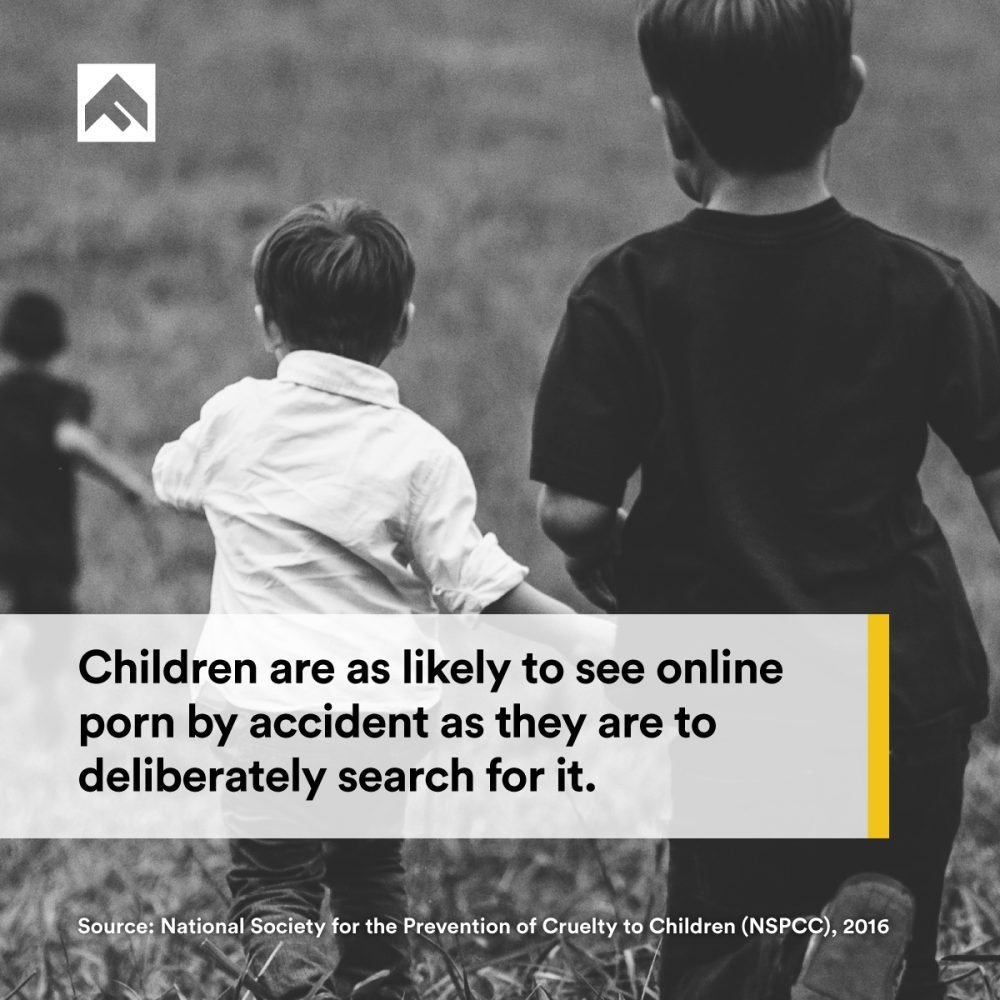Portions of this post were originally reported by Newshub. 4-minute read.
Hundreds of thousands of porn searches have been blocked at schools in New Zealand, according to news reports. The New Zealand Ministry of Education revealed recently that more than 300,000 searches for pornography were censored on school networks in one month.
“This tells us that children are curious, they are seeking to access [pornography], and it tells us that the safeguards in the schooling environment are in place,” Associate Deputy Secretary Pauline Cleaver said. “But it means that we have to have communities, parents, whānau, and teachers feeling confident and skillful enough to have conversations about the harmful effects of pornography.”
Cleaver said mandatory classes that have information about sex in New Zealand schools are a critical part of the health and education curriculum, but they don’t cover issues that are more real and relevant to students.
“There is a confidence issue with some teachers feeling ill-equipped to teach and manage conversations about the real issues, like consent, like sexual violence, and the harmful effects of pornography,” she said.
Nikki Kaye, a spokesperson for National’s Education, admitted she was deeply concerned by the extent of youth accessing porn. She suggested there was a “sexualization occurring” and children’s access to devices within their homes meant it was harder to track what they’re viewing.
Click here to read the original article posted on New Zealand’s news site, Newshub.
Why are students searching out porn so often?
Kids are curious about sex. Spoiler alert: this is normal and healthy.
What’s not healthy: going to porn for all the answers. In an ideal situation, a child would feel free to tell their parents about what they heard on the playground or found on the computer by accident. Often, they can be too scared to say anything, and the issue won’t be brought up.
Related: 4 Things Porn Is Teaching This Generation About Sex
We think it’s important for parents to talk to their kids about what porn is before they see it for the first time, and keep the conversation open, shame-free, honest, and loving. Instilling a total fear of porn in a young child may work for a short while, but it’s not a long-term help to keeping the lines of communication open. If kids feel their parents are open to listening to their struggles or questions, they’ll be more likely to approach the subject whenever it comes up instead of hiding their curiosity and searching for it on their own.
Evolving technology in this evolving fight
Technology changes quickly, and it seems to be impossible for different filtering tools to keep up with the changes, though New Zealand’s filtering systems seemed to be successful.
Like duct tape, filtering tools can work for a time, but a new study by the Oxford Internet Institute has found these tools to be generally ineffective in preventing teenagers from viewing pornography.
The study found that in order for filtering tools to be effective, anywhere from 17-77% of households would need to have them, and that 99.5% of the time, whether or not a teen encountered sexual material on the internet was dependent on factors other than parental control tools put on devices.
Related: For Parents: How To Update “The Talks” With Your Kids To Include Porn
Considering data says about 1 in 10 visitors of hardcore pornography sites are under ten years old, this is real cause for concern. So if internet filtering tools are proving to be ineffective, what should parents do to prevent kids and teens from coming across porn?
As to be expected, none of our answers are quick fixes, but rely on continued research, communication, and investment. Click here to check out a shortlist we compiled to guide a parent through preventing their children from encountering explicit content on their devices.
And to help curious minds from looking for answers in the wrong places, Fight the New Drug recommends tech-based solutions for anyone who needs help with web monitoring. This is why we highly recommend checking out our friends at Bark—an easy-to-use, smart tool that parents can use to help protect their children online. Bark uses a highly advanced algorithm to alert parents when it detects porn site visitation as well as potential threats or signs of danger, such as:
Click here to learn more about their trust-building, common sense online tools.
So does this mean I should get rid of my internet filter?
Absolutely not! Many experts say that internet filters are still good tools when they are used in a mixed-methods approach, rather than as a first line of defense. Combining an internet filter with open communication about pornography and technology, as well as other preventative measures, can help ensure that a child will be prepared when they run into hardcore sites on their device.
Remember: even if your internet is filtered, this absolutely will not stop them from encountering porn in public places, through friends and peers, or some other way. It’s not an “if,” it’s a “when.” But—there is hope, and help. Now more than ever, parents can prepare them and prep them for what to do when they see something.
Though it may seem scary to talk about a topic as intense as pornography with teens and children, there are resources in place to help and your kids will be much better off because of it. Check out our free conversation guide resource called “Let’s Talk About Porn” to help with navigating these tough but important conversations.
Being informed and then informing your children about pornography and its negative effects can be some of the best ways to help them navigate the internet and avoid porn. Unfortunately, you can’t rely on a filter to do that job for you, but you can be a constant, trusted resource that your kids will feel safe with and rely on for times to come.

Your Support Matters Now More Than Ever
Most kids today are exposed to porn by the age of 12. By the time they’re teenagers, 75% of boys and 70% of girls have already viewed itRobb, M.B., & Mann, S. (2023). Teens and pornography. San Francisco, CA: Common Sense.Copy —often before they’ve had a single healthy conversation about it.
Even more concerning: over half of boys and nearly 40% of girls believe porn is a realistic depiction of sexMartellozzo, E., Monaghan, A., Adler, J. R., Davidson, J., Leyva, R., & Horvath, M. A. H. (2016). “I wasn’t sure it was normal to watch it”: A quantitative and qualitative examination of the impact of online pornography on the values, attitudes, beliefs and behaviours of children and young people. Middlesex University, NSPCC, & Office of the Children’s Commissioner.Copy . And among teens who have seen porn, more than 79% of teens use it to learn how to have sexRobb, M.B., & Mann, S. (2023). Teens and pornography. San Francisco, CA: Common Sense.Copy . That means millions of young people are getting sex ed from violent, degrading content, which becomes their baseline understanding of intimacy. Out of the most popular porn, 33%-88% of videos contain physical aggression and nonconsensual violence-related themesFritz, N., Malic, V., Paul, B., & Zhou, Y. (2020). A descriptive analysis of the types, targets, and relative frequency of aggression in mainstream pornography. Archives of Sexual Behavior, 49(8), 3041-3053. doi:10.1007/s10508-020-01773-0Copy Bridges et al., 2010, “Aggression and Sexual Behavior in Best-Selling Pornography Videos: A Content Analysis,” Violence Against Women.Copy .
From increasing rates of loneliness, depression, and self-doubt, to distorted views of sex, reduced relationship satisfaction, and riskier sexual behavior among teens, porn is impacting individuals, relationships, and society worldwideFight the New Drug. (2024, May). Get the Facts (Series of web articles). Fight the New Drug.Copy .
This is why Fight the New Drug exists—but we can’t do it without you.
Your donation directly fuels the creation of new educational resources, including our awareness-raising videos, podcasts, research-driven articles, engaging school presentations, and digital tools that reach youth where they are: online and in school. It equips individuals, parents, educators, and youth with trustworthy resources to start the conversation.
Will you join us? We’re grateful for whatever you can give—but a recurring donation makes the biggest difference. Every dollar directly supports our vital work, and every individual we reach decreases sexual exploitation. Let’s fight for real love:





